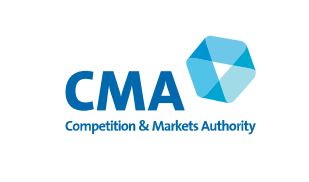UK investigation of Motorola Solutions expected to yield preliminary results in April
UK government market investigators are scheduled to publish in April a provisional decision about Motorola Solutions’ role in the Airwave public-safety TETRA network and issue a final report on the matter in June, according to an administrative timetable posted this week by the Competition and Markets Authority (CMA).
Based on this schedule, it appears that the UK Home Office and Motorola Solutions would need to reach an agreement on an anticipated four-year Airwave extension—something that is supposed to be completed by the end year—several months before the outcome of the market investigation is known.
Motorola Solutions Chairman and CEO Greg Brown yesterday acknowledged the CMA market-investigation timeline and the company’s ongoing discussions with the UK Home Office about Airwave and the LTE-based Emergency Services Network (ESN).
“The contract for Airwave runs through all of 2022. ESN, under its current construct, runs through all of 2024,” Brown said during the Motorola Solutions third-quarter earnings call, which was webcast. “We’ve been in active conversations with the UK Home Office. They have expressed the desire to extend the Airwave contract—that’s underpinned the ongoing conversations we’ve had.
“We’ve also obviously are involved with the CMA and are adhering to the process that they’ve outlined. I think the process will take several months. It will go well into 2022.”
Brown did not provide any further details about talks with UK officials, but he noted that these efforts are not distracting Motorola Solutions from the core Airwave mission of providing mission-critical voice communications to UK first responders.
“We continue to make investments in the network … to keep it current, to keep it reliable,” Brown said. “[Maintaining] the service levels to the end-user customer and [having] no disruption of that are of the absolute, utmost importance. We’ll continue the dialog with both the UK Home Office and the CMA. I am hopeful that we’ll have constructive outcomes, but we’ll see how it plays out over the next several months.”
CMA last week announced its plan to conduct a market investigation of Motorola Solutions regarding its ownership of Airwave, noting that the proceeding could result in the UK government implementing pricing controls on the TETRA network or force Motorola Solutions to divest itself of the highly profitable Airwave system. When CMA launched its consultation in July, the regulator reported that Motorola Solution is set to realize about £1.2 billion—$1.66 billion—in “excess profits” from 2020 through 2026 through extensions of the Airwave contract.
“As the sole provider of critical mobile radio network services used by our emergency services, we’re concerned that Motorola could be cashing in on its position, leaving taxpayers to cover the cost,” CMA Chief Executive Andrea Coscelli said in a prepared statement on Oct. 25.
Airwave initially was supposed to be shut down at the end of 2019, because the UK Home Office planned to transition all public-safety mission-critical voice communications to the LTE-based Emergency Services Network (ESN).
In late 2015, Motorola Solutions won the contract to provide software and services for the ESN, making it responsible for providing the mission-critical-push-to-talk (MCPTT) service on the public-safety LTE system that would let the Home Office decommission Airwave. Weeks later, Motorola Solutions announced that it would purchase Airwave in a deal that closed in early 2016.
CMA expressed concerns about Motorola Solutions’ dual roles when the Airwave purchase was considered in 2016, but the agency approved the deal after receiving assurances from the Home Office and Motorola Solutions that Airwave would be shut down when the ESN was finished in 2019.
Of course, the ESN was not finished in 2019, which led to the Home Office signing a three-year extension with Motorola Solutions to continue operations of the Airwave TETRA system. That deal is set to expire at the end of 2022, and the contract calls for any further extension agreement to be signed at least 12 months before the expiration date, meaning a new Airwave extension is supposed to be signed by the end of this year, which is less than two months away.
Home Office officials now plan to complete the ESN by the end of 2026, so they would like to have the next Airwave extension cover at least the four-year period in the interim. However, the CMA has noted that the Home Office has “limited leverage to secure value for money in any future extension of Airwave contract, because there is no existing mission-critical-voice alternative to Airwave, which has bolstered Motorola Solutions’ international profits significantly in recent years.
It is unclear at this time whether an Airwave extension agreement would make the CMA market investigation moot or whether the investigation’s findings could result in the terms of the extension being revisited. IWCE’s Urgent Communications asked about these scenarios, but the CMA declined to comment on the matter—a typical response, as government agencies often avoid commenting on hypothetical situations, particularly during an investigation.
Motorola Solutions stated that it believes a CMA market investigation is “not warranted.” The public-safety-communications vendor giant has been particularly outspoken in refuting the notion that it has slowed delivery on its ESN obligations in an attempt to maximize the revenue potential from the highly profitable Airwave system—an assertion that the CMA investigation is expected to explore.
CMA’s final report that accompanied the launch of the Motorola Solutions market investigation cited three potential remedies to address the issues:
- Establishing pricing controls on Airwave via some form of rate-of-return regulation, a common practice use by regulators dealing with natural monopoly networks;
- Requiring Airwave to practice open-book accounting, “including the mandatory reporting of capital expenditure.” The CMA report claims that Motorola Solutions did not reach the capital-expenditure levels on Airwave promised to the Home Office, but this information was only learned recently.
- Require Motorola Solutions to divest Airwave.
















